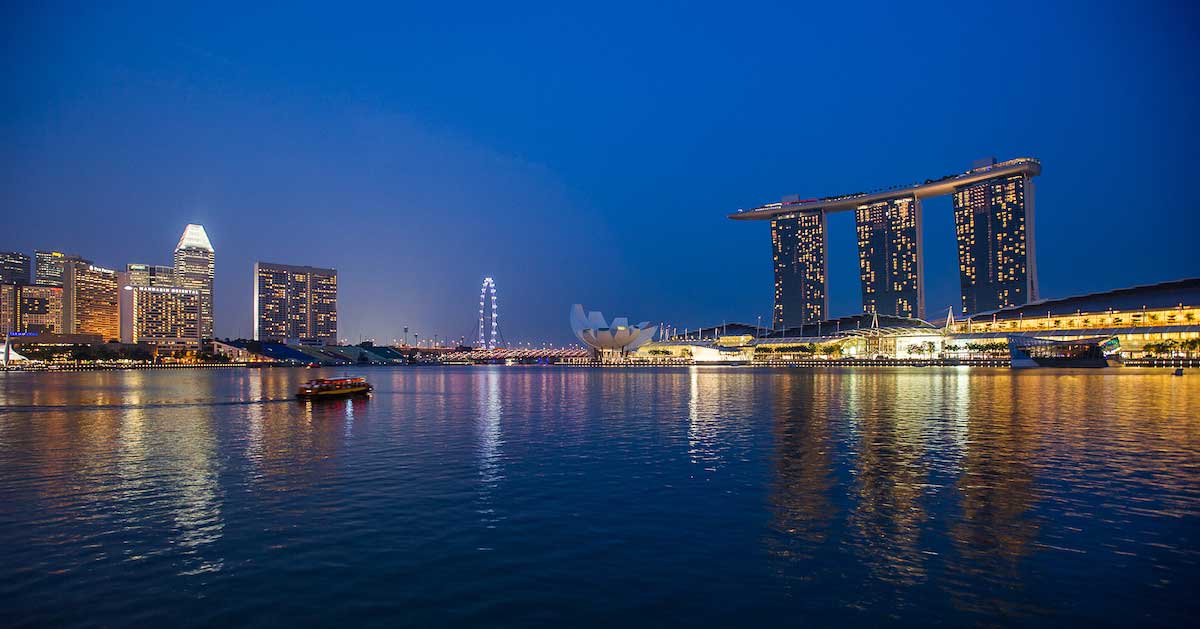It’s clear that the new business events landscape will involve a few things most of us have quickly become accustomed to experiencing (or at least discussing): masks, social distancing, health screenings and constant sanitization of anything an attendee might touch or interact with.
But following these general guidelines and hoping for success isn’t enough. Savvy destination officials know that a gradual, measurable approach is key to successfully “reopening.” As some destinations rushed reopening stages only to scale them back later following disastrous results, Singapore is essentially taking the opposite approach: start small and gradually increase business event size and scope if, and only if, it’s clear that the health and safety practices were successful.
Last month, the Singapore Tourism Board (STB) announced the Safe Business Event Risk Management Framework for business events of up to 50 attendees. Two pilot events will serve as a trial for the new framework before it is gradually scaled up to include larger gatherings.
There are five key outcomes that event organizers must achieve under the framework:
1. Infection control measures for every stage of an event attendee’s journey (pre- to post-event)
2. Limits on crowd density.
3. Limits on close contact between individuals.
4. Ensuring a safe and clean environment.
5. Preparing for emergencies relating to COVID-19.
With the STB acknowledging that hybrid events—part face-to-face, part virtual—will likely be the norm in the near future, it makes sense that the two trial framework events will include a maximum of 50 attendees on site and approximately 1,000 virtual attendees. The IEEE International Conference on Computational Electromagnetics (Aug. 24-26) and the Asia Pacific MedTech Virtual Forum (Sept. 24) were selected because organizers were proactive in engaging venues and the STB about safety practices.
The STB has also announced a partnership with Enterprise Singapore and the Singapore Association of Convention and Exhibition Organizers and Suppliers to create an Industry Resilience Roadmap focused on three strategic objectives: establishing best-in-class standards for new event safety measures, creating agile business models with a focus on digital capabilities and developing pathways for professional development in the post-COVID-19 world.
Start small and gradually increase business event size and scope if, and only if, it’s clear that the health and safety practices were successful.
“Singapore’s business events sector has shown much resilience during this difficult period, and we are grateful for their innovativeness and adaptability,” says Keith Tan, chief executive, STB. “While COVID-19 has severely disrupted the industry, I am confident that Singapore will lead the way in reimagining what a safe and high-quality business event could look like.”
The SG Clean campaign is a good example of establishing and maintaining reliable sanitation standards and hygiene practices.
“To be certified, businesses must undergo rigorous assessments by independent auditors and meet the requirements on a seven-point checklist tailored to the various sectors such as hotels, conference venues and tourist attractions,” says Rachel Loh, regional director, Americas, for the STB. “To date, all five of Singapore’s top meeting and business event venues have received the SG Clean quality mark, including Suntec Singapore Convention & Exhibition Centre, Raffles City Convention Centre, Resorts World Convention Centre, Sands Expo & Convention Centre and Singapore EXPO & MAX Atria.”
As of July 13, more than 900 SG Clean Quality Mark certificates had been issued to tourism establishments.
Loh says the STB is helping meeting professionals digitally transform their events and embrace technology.
“Singapore will lead the way in reimagining what a safe and high-quality business event could look like.”
“For example, a three-step framework (Learn-Test-Build) will enable companies to learn more about themselves, test their concept and ideas and leverage digital platforms to build solutions to meet customer needs,” she says.
The Learn-Test-Build model is structured this way: Learn, “Do you know what your barriers to digital transformation are?”; Test, “Are you looking to refine your digital strategy, redesign a customer experience or simply just unsure if an idea works?”; and Build: “Do you want to speed up digital solution development and implementation?”
Loh says Singapore, awarded “Asia Pacific’s Top Meeting City” for 18 consecutive years by ICCA, has enough diversity in offerings and venue options—in addition to a convenient location in the heart of Asia—to make it a fit for everything from conventions to corporate events to incentive trips.
“One of the best parts of hosting an event in Singapore is offering your group the opportunity to explore the multicultural and ever-evolving city with ease,” she says. “Known for both its rich culture and carefully preserved historic architecture blended with futuristic design, Singapore provides a wide array of activities that will meet the desires of groups, from foodies to culture explorers to socializers.”
Popular activity options include the world-famous Super Trees at Gardens By the Bay (seen in the movie Crazy Rich Asians), sampling local delights at a hawker center, artisanal cocktails at world-renowned bars or seeing the world’s largest indoor waterfall at Jewel Changi, a multi-dimensional lifestyle destination that opened in 2019.
“These attractions and many others are SG Clean-certified and comply with Safe Management Measures, providing visitors with peace of mind when exploring Singapore,” Loh says. “The global business events industry, including Singapore’s, will need to evolve. We believe that Singapore’s fundamentals as an attractive business events destination and the city’s excellent infrastructure, stable government, tightly-knit business events ecosystem and a vibrant business culture will stand us in good stead to ride out these challenging times.”
Photo courtesy Singapore Tourism Board.



